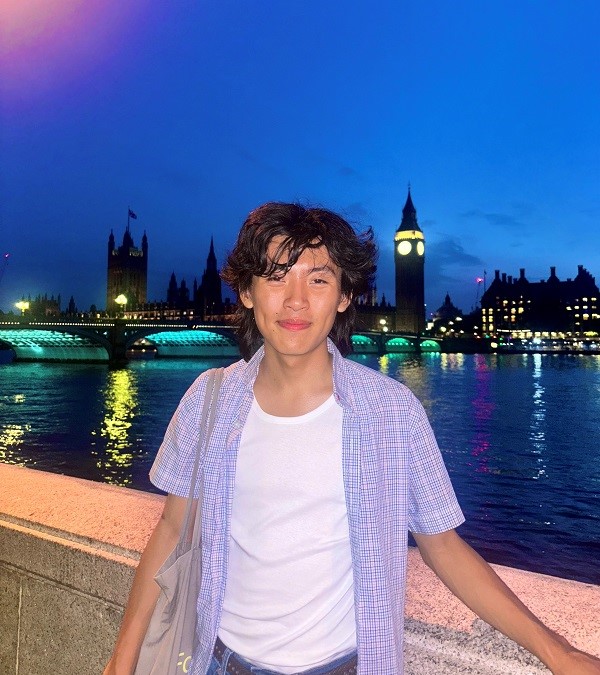Eric Xu is an HBA ’24 candidate who spent a portion of the summer at WHU Otto Beisheim School of Management in Vallendar, Germany doing a short-term exchange. In his blog below, he writes about how the experience exposed him to cultural differences and made him more resilient to challenges.
It was with nervous anticipation and excitement that I booked my flight to Vallendar, a small town of 8,000 people in the southwestern German state of Rhineland-Palatinate and home to the WHU Otto Beisheim School of Management.
Prior to enrolling in Ivey’s inaugural Short-term Summer Exchange Program, I had never left North America, and had spent my entire life in southwestern Ontario and the Greater Toronto Area. I wanted to explore beyond the familiar sights of my upbringing.
The perfect program
The Short-term Summer Exchange Program offers HBA students the chance to participate in a three- to six-week-long international experience after completing their four years at Ivey and Western University. I was thrilled to participate in an international experience, while still being able to cherish my final semester of university and finish my varsity season.
An academic, cultural, and social experience
My time in Germany far surpassed my expectations! Our lectures, covering topics such as European trade and monetary integration, European capital markets, and intercultural communication, focused on the nuances of business in Europe that would have been hard to pick up at a non-European school. The curriculum greatly complemented the fundamental knowledge I had acquired at Ivey and Western, and the focus on team-based work gave us practice working with individuals from all nationalities and lived experiences.
We also had the opportunity to view our in-class teachings in practice. In Frankfurt, we heard from sales executives at Vanguard and managing directors at Deutsche Bank, who gave us an overview of European capital markets and key differences from their North American counterparts. Closer to home, a tour and tasting at a fifth-generation, family-owned brewery demonstrated how strong leadership can enable a business to preserve heritage and tradition, while modernizing to incorporate new tastes and sustainable practices.
Beyond the classroom, I gained a deep appreciation for the rich culture of the Rhineland and Germany, and learned about the nation’s storied history. We enjoyed a traditional dinner of sausage, potatoes, and sauerkraut in an 11th-century wine cellar, explored two medieval castles, and enjoyed guided tours of the historical cities of Bonn and Koblenz. We also toured a Cold War bunker, and visited the Haus der Geschichte (House of the History of the Federal Republic of Germany), a museum chronicling modern German history from 1945 to reunification. My efforts to learn German also bore fruit, and, by the end of the month, I could order at the bakery and make small talk at the supermarket.
I spent my free time with my classmates from all around the globe: the U.S., Hong Kong, Thailand, Peru, etc. We talked about the differences in our lives as students in each country and our plans for the future – and bonded over unexpected similarities. Between late-night conversations and two self-planned weekend trips to Dresden and Strasbourg, I came into a country of strangers and came out with friends.
Embracing differences and global perspectives
As future business leaders in a globalized world, it is guaranteed that we will need to work across cultural, ethnic, and national borders on a regular basis. My exchange experience exposed me to some of the differences that can arise from such a situation (i.e., different attitudes toward hierarchy and leadership, work-life balance, risk tolerance, acceptable communication styles), and taught me how to work around them. But through class and our team-based work, we witnessed firsthand the many benefits to be reaped from embracing differences in lived experiences and perspectives.
I also learned much about how to better embrace differences. As I immersed myself in German culture, food, history, and language, I noticed my appreciation for the country and its people deepening. It is so hard not to fall in love with a culture that you have taken the time to explore. As a guest in someone else’s home, it is important to reciprocate the warm welcome by trying to understand the host’s culture.
The adventure of a lifetime
My exchange experience gave me confidence in my ability to adapt and thrive in new environments, and a thirst to continue exploring. Ultimately, I made the decision to push back my return to Canada. For the next three months, I lived out of my schoolbag, sleeping in youth hostels and living-room couches across two continents on a student budget.
During that time, I completed the Three Peaks Challenge (climbing the tallest mountains in England, Wales, and Scotland), performed in the Edinburgh Fringe Festival, and learned how to surf in the Basque Country of Spain. I also witnessed a traditional Palio horse race in a Tuscan town square in Italy, rode a train four days across the U.S. from Los Angeles to Buffalo, and grew my hair out shoulder-length because I was away from my trusted local barbershop.
Along the way, I learned even more about myself, my capabilities, and life. I believe that these last four months have made me a different person – one who is more confident, open-minded and resilient. I returned to Canada excited to begin my next chapter in life and ready to face the challenges that await me.
My exchange experience was just the beginning – and a very special part – of the adventure of a lifetime. I am very grateful to have had this privileged experience.




